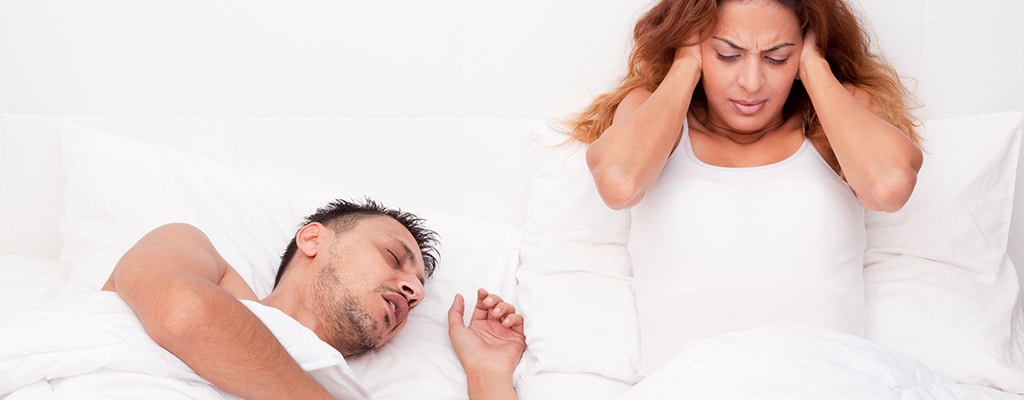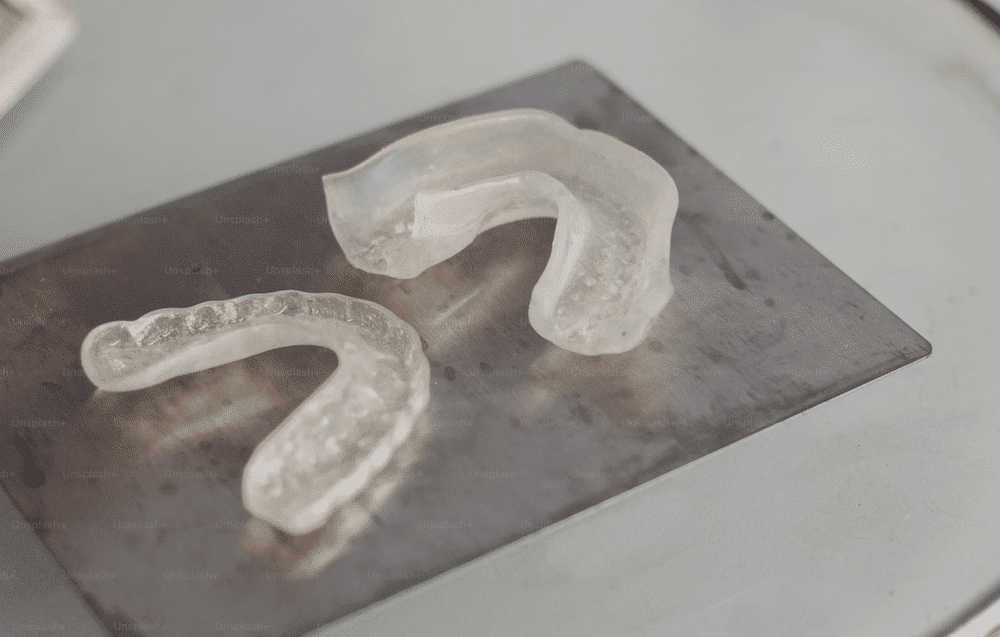
What are oral appliances?
Oral appliances are a non-invasive treatment option for severe snoring or obstructive sleep apnea (OSA), which is sometimes recommended for patients who are unable to use a CPAP mask or do not use it regularly (non-compliant). Sleep apnea dental appliances are worn in the mouth while a patient is sleeping and prevents the tongue or soft tissues in the mouth from collapsing and blocking the airway.
What types of oral appliances are there?
There are various types of oral appliances available. Check with an ear, nose and throat specialist, such as New York ENT to determine the most effective oral appliance for your needs. Most of the commonly used appliances can be broken into two groups:
- Mandibular advancement devices – prevent airway blockage by repositioning the tongue inside the mouth during sleep
- Tongue-retaining appliances – reposition the lower jaw in order to prevent airway collapse

Read what our patients are saying!
"I’ve been a patient of Dr. Volpi’s for more than two years. As someone who is genetically inclined toward sinus issues, I’ve seen my share of ENTs and he is hands down the best. He explains everything to you in terms you can understand without being pedantic and truly cares about his patients. After he performed my second sinus surgery (to fix another doctor’s failed attempt) he even gave my mother (my post-surgery caretaker) his cell number and was answering her questions no matter the time of day. Finding a good, friendly doctor in NYC can be a challenge, but rest assured you are in good hands at this office."
Click here to read more reviews.
Why are oral appliances used?
Oral appliances can treat the following conditions:
- Low oxygen levels during sleep
- Mild sleep apnea
- Severe snoring
- Airway obstruction during sleep
How do oral appliances work?
“Oral appliances are usually custom-fit for each patient, and can prevent airway obstruction by repositioning the tongue or jaw during sleep. When the airway is enlarged, more oxygen can flow freely into the body, keeping important body functions working properly.
Additionally, these sleep apnea appliances prevent patients who suffer from severe snoring or OSA and bed partners from experiencing awakening during the night due to snoring or grunts associated with OSA.”
What are the advantages of using oral appliances?
Using an oral appliance for sleep apnea or snoring has the following benefits:
- Non-invasive
- May be easier to use than CPAP (compliance rates are higher)
- Increases quality of sleep
- Improves daytime concentration
- Relieves snoring
- Corrects mild sleep apnea symptoms
How Do Mandibular Advancement Devices Work?
The mandibular advancement device, or MADs, is a mouthpiece that is designed to keep the jaw in a more forward position than its natural state in order to expand the airways during sleep. Each mandibular advancement device is custom-made for each patient based on a moldable thermoplastic material that can bend to fit your upper and lower teeth. Made of elastic bands, these mouthpieces are easily adjustable and can help prevent snoring during sleep. Many patients enjoy the flexibility that comes with this mouthpiece.
How Do Tongue-Retaining Appliances Work?
Tongue-retaining appliances are another oral device that can help keep the airways clear for breathing during sleep. A tongue-retaining appliance resembles a bigger version of a pacifier and is made to hold your tongue forward to prevent airway obstruction and snoring. Comfortable and easy to use, this device will also be specifically designed to fit your mouth and serves as an alternative option for patients who are not interested in using the mandibular advancement device.
Who Is Eligible For OAT?
The ideal candidates for OAT treatment are people who have noticed irregular sleeping patterns or disrupted sleep caused by snoring or lack of breathing during sleep at night. Because OAT devices are used at home, optimal results are based on patient participation. While most patients are eligible for OAT, it is important to consult with Dr. Volpi in detail about your dental and medical history to determine your eligibility for using OAT devices.
These devices may not be recommended for people who cannot stick their tongue out past their teeth, children who have breathing issues during sleep, people with asthma, or those prone to allergies whose symptoms may worsen while lying down.
How Do I Know if I Have Obstructive Sleep Apnea?
If you have obstructive sleep apnea, chances are your chronic snoring is disruptive to yourself or someone who sleeps in close proximity to you. Loud, chronic snoring is only one of many signs that your doctor will look at to understand what's happening when you sleep.
The challenge with sleep apnea is that, if you have it, it's very unlikely that you wake up in the night when you stop breathing. Even if you do wake fully, which you most likely won't from every episode. For this reason, it's necessary to become familiar with other signs that indicate your quality of sleep is suffering. These include:
- You're very tired during the day, even if you go to bed early to get extra sleep.
- You wake up with a dry mouth or sore throat.
- You often have a headache when you wake up.
- Your heartbeat is irregular at times or you have heart palpitations.
- You have high blood pressure.
- You wake sensing that you were restless during the night.
Seeing the symptoms of sleep apnea is beneficial. However, your symptoms aren't enough to confirm a diagnosis. To accurately diagnose the cause of poor sleep quality, your doctor may order a sleep study. This type of study measures multiple vital signs while you sleep, including your heart rate, sounds that you make, and your blood oxygen levels. Sleep studies have historically been conducted in a formal sleep lab. Thanks to advances in technology, many sleep studies are now performed at home with a few easy-to-use monitors.
If I Snore, Does That Mean I Have Obstructive Sleep Apnea?
You can snore loudly every night and still not have obstructive sleep apnea. Snoring means that your airway is narrowed for some reason. However, as long as you're making the sounds of snoring, created by air moving over soft tissue and causing vibration, your problem is just that, snoring.
Now, snoring can have its own consequences. You may not be getting quality sleep if you snore. Your partner or people who sleep nearby may not be getting quality sleep due to your snoring. For this reason, if you know that you are a chronic snorer, it's to your advantage to consult with a specialist who can determine why you're snoring and what might help curb this habit.
I Snore But Do Not Have Sleep Apnea. Might I Still Need Oral Appliance Therapy?
Snoring can occur for a number of different reasons. Occasional snoring could be due to a stuffy nose, allergies, a cold, or other temporary blockage. If you have chronic snoring, your blockage could be structural. A deviated septum can create an obstacle to efficient breathing. Poor muscle tone at the back of the mouth, tongue, and throat is a relatively common reason for chronic snoring. You may snore because your tonsils are large or because the weight around your neck collapses your airway to some extent.
Whatever the cause of chronic snoring, there is a solution. You don't have to have obstructive sleep apnea to be a candidate for oral appliance therapy! If you snore because your soft palate is long, your neck tissue is heavy, or your tongue or other soft tissue is crowding the airway, a custom-fit oral appliance may be an ideal solution! A consultation with a board-certified ear, nose, and throat doctor can determine why you snore. Determining the cause is the first step to finding an efficient treatment to restore your good night's sleep.
What Happens If I Leave Sleep Apnea Untreated?
Although sleep apnea may not be threatening in its early stages, once someone with sleep apnea struggles long enough, they may begin to develop symptoms of constantly interrupted sleep, such as chronic fatigue and increased irritability. When sleep apnea becomes more disruptive in one’s sleep, this can lead to shortness of breath or even stopped breathing during sleep. Long-term effects of sleep apnea may lead to heart disease, diabetes, strokes, and heart attacks. If you notice any complications while sleeping, we recommend getting checked immediately for sleep apnea to determine how you can best treat it and avoid life-altering complications.
Contact us Today!
If you are suffering from OSA or snoring and believe you may benefit from oral appliance therapy, the first step is to schedule an evaluation with an experienced ear, nose and throat doctor. Board certified physicians with New York ENT have extensive experience treating a variety of sleep disorders. Fill out the form on this page or call our office at 212-873-6036 to schedule an appointment today.



